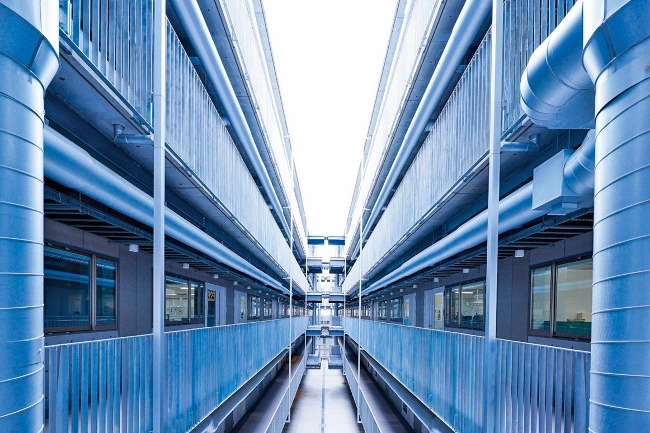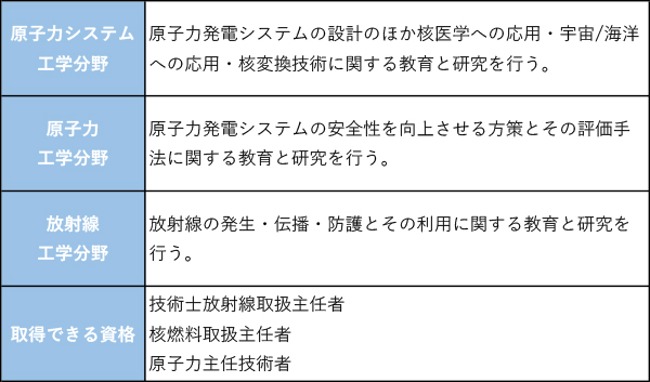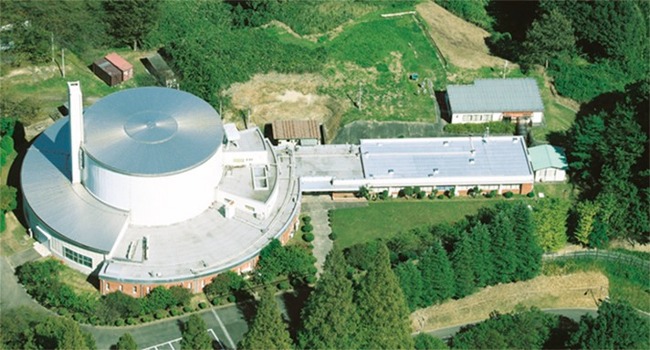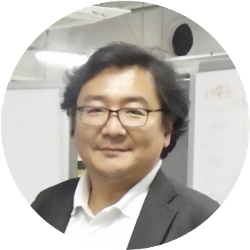At Tokyo City University, which has a department with the title "Nuclear Energy" that is rare in Japan, the "Atomic Energy Research Institute" was opened in 1960 during the era of its predecessor, Musashi Institute of Technology, with the aim of promoting the peaceful use of nuclear energy. It has been used in a variety of ways as a shared facility. Although the nuclear reactor has now been decommissioned, it is used as a facility for handling radioactive isotopes for experimental training in the Department of Nuclear Safety Engineering and the joint graduate school "Joint Department of Nuclear Energy" with Waseda University, where students learn about "nuclear power and radiation". In addition to providing opportunities to deepen understanding, it is also used as a facility for the purpose of contributing to society.
This time, we visited the University's Department of Nuclear Safety Engineering, where the need for human resource development is increasing as the social situation surrounding energy has changed significantly over the past few years. We asked him to give a message to high school students.

New research building housing research laboratories of the Faculty of Science and Engineering [Setagaya campus]
What is the Department of Nuclear Safety Engineering, Faculty of Science and Engineering?
This department arranges the four pillars of nuclear engineering, nuclear engineering, nuclear safety engineering, radiation engineering, and cycle engineering, into the three fields of nuclear system engineering, nuclear safety engineering, and radiation engineering, and has 10 laboratories. is being installed. In addition to conducting research covering almost all fields of nuclear engineering, from basics to applications, we also provide education aimed at training nuclear engineers who will support nuclear safety with ethical standards and lead a new era. .

Our graduate school is also unique, and we have jointly established the ``Joint Department of Nuclear Energy'' with Waseda University, which was the first collaborative graduate school in Japan.
The characteristics of the education are that, as certified by the Japan Accreditation Board for Engineers Education (JABEE)*1, programs are designed to help engineers acquire the knowledge and skills necessary to become a "world-class" There are lessons available to help you become an engineer. First and second year students learn basic knowledge*2 through lectures and acquire basic skills through experiments related to electricity, mechanics, and radiation. In many high schools, learning is centered around textbooks, but in this department, students learn many fields such as electromagnetism and mechanics using actual experimental equipment. Because engineering is the science of creating things, it is efficient to learn by touching things and using your hands, and there are more opportunities for students to play an active role in society after graduation.
From the third year of undergraduate studies, students are divided into highly specialized laboratories, where they interact with graduate students and gain exposure to cutting-edge research. Approximately half of graduates from this department go on to graduate school, and depending on the laboratory, you can learn not only about nuclear power generation, but also medical radiation and analysis techniques for materials using accelerators, so regardless of undergraduate or graduate school, you can learn , job opportunities are expanding to a variety of industries and business types other than electric power companies and nuclear power plant manufacturers.
In addition, our university's Atomic Energy Research Institute has not only saved the lives of many patients through surgical operations using radiation, but also achieved international research results in the analysis of trace elements in the environment through activation analysis. Masu.
*1 JABEE: Japan Accreditation Board for Engineer Education. Established in 1999. A non-governmental organization that examines and certifies "educational programs" from the viewpoints of "the knowledge and abilities necessary for engineers" and "the standards required by society." Usually, it corresponds to a department of engineering, agriculture, or science, or a course within a department. The certification program's technical education is recognized as internationally equivalent.
*2 A representative lecture is "Nuclear Theory", which is one of the engineering education subjects. This course is also open to students from other departments and universities.

Atomic Energy Research Institute [Ozenji Campus]
My specialty and the path to this point
In the undergraduate and graduate nuclear safety engineering fields, we conduct research to improve the safety of nuclear power plants. Specifically, based on the academic field of thermofluid engineering*3, we will focus on the flow that circulates inside a plant and identify those that are important from the perspective of improving safety, and use basic experiments and computer simulations to investigate the We are conducting a detailed analysis of the flow and researching ways to control it. Actually, I earned my doctorate in a field called chemical engineering, which at first glance has nothing to do with nuclear power, and was a study of the blood circulation system in living organisms. Currently, we are applying this to research on circulation systems within nuclear power plants.
In the natural sciences, the same principles and equations often apply to completely different objects. When I was in high school, I had an eye-opening experience when I learned that the law of universal gravitation, which explains the movement of celestial bodies, also applies to the behavior of minute, positive and negative charged particles. This is also a good example of the same principle working on different objects.
After obtaining my doctorate at graduate school, I decided to pursue research in the field of nuclear power because I was thinking about Japan's energy future and thought nuclear power was a very attractive option for a country that relies on imports for most of its resources. After completing my postdoctoral studies at a research institute in Japan, I spent four years at a university in Germany participating in projects promoted by the EU and IAEA, and my passion for this work has grown even stronger to this day. By the way, nearly 20 years ago, Germany decided to phase out all nuclear power plants in the country and stopped their operations in sequence, with the last nuclear power plant recently shutting down. However, in the wake of Russia's invasion of Ukraine, there is a survey showing that XNUMX% of people who are concerned about energy supplies want to restart nuclear power plants, which is a historical irony.
*3 An academic field that deals with "flow" by taking into account the compressibility of fluids that have heat, such as water vapor flowing in the pipes of a nuclear power plant.
Attracting highly motivated students through the Nuclear Power Personnel Entrance Examination
Our university's comprehensive selection system targets those who have sufficient basic academic ability to receive education in the Department of Nuclear Safety Engineering and who wish to acquire specialized knowledge and skills related to nuclear power and radiation with a clear purpose. We have introduced the ``Nuclear Human Resources Entrance Examination''.
This entrance exam is aimed at high school students who want to learn about nuclear power and radiation and use that knowledge and technology to contribute to society in the future. The number of applicants is increasing year by year, and I feel firsthand that people's interest in nuclear power is increasing. Of course, there are entrance exams that are common to other departments, so the door is open to those who want to acquire knowledge and techniques about nuclear power and radiation, and use that as a foundation to take on the challenge of research and problem solving in different fields.
After the Great East Japan Earthquake, the Nuclear Regulation Authority was established in Japan, and each electric power company aims to build nuclear power plants with the world's highest standards of safety. Looking around the world, some countries are actively developing small modular reactors and fast reactors using sodium coolant. In addition to power generation plants, it is also essential to commercialize small nuclear reactors for ships and spacecraft, and to develop various medical technologies that utilize radiation.
Those who are interested in electric energy and nuclear power, those who are concerned about how to ensure stable energy and a prosperous life, those who want to contribute to the recovery from the Fukushima accident, and those who want to build safe new nuclear energy power generation facilities. We are looking forward to the challenges of high school students with big dreams and a global perspective.

Professor, Department of Nuclear Safety Engineering, Faculty of Science and Engineering, Tokyo City University
Mr. Toru Suzuki

